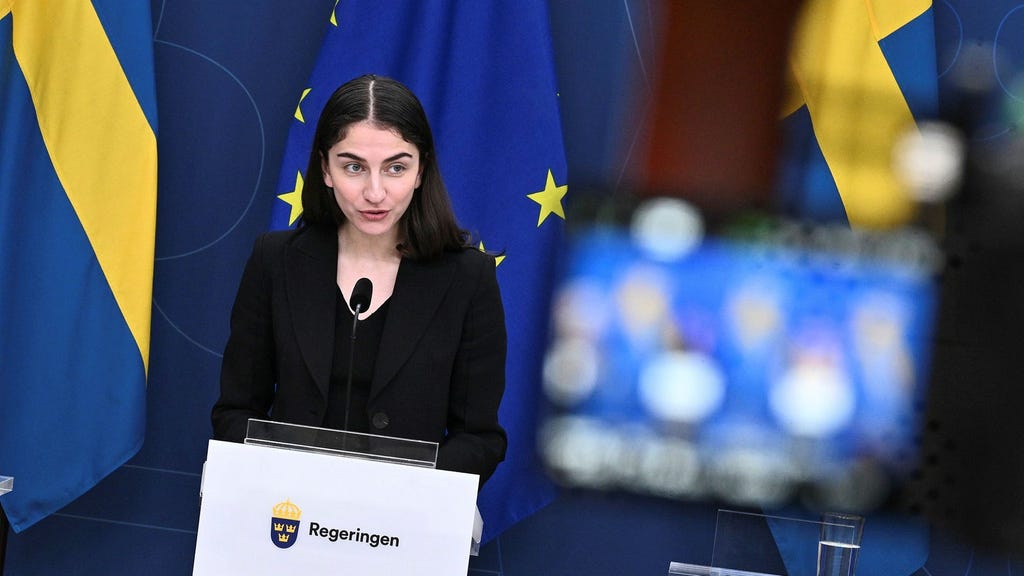The Swedish government has commissioned a review of the country’s national climate targets, prompted by significant developments in EU climate policy, particularly the ”Fit for 55” package, which has set more ambitious emissions reduction targets for 2030. This poses a significant challenge for Sweden, especially within the Effort Sharing Regulation (ESR) sectors, which include transport, heating, and agriculture, with the transport sector proving particularly problematic. The government acknowledges the need to re-evaluate its national targets in light of these new EU commitments, aiming to ensure alignment and avoid potential conflicts between national and EU objectives. Climate Minister Romina Pourmokhtari (Liberal Party) emphasizes the consensus between the government and the Sweden Democrats on this matter.
A key area of concern is the existing Swedish target of reducing transport emissions by 70% by 2030 compared to 2010. This target has been questioned, notably by government investigator John Hassler, due to its overlap with the EU’s ESR sector goals, which encompass not only transport but also heating and agriculture. The Environmental Objectives Council has been tasked with evaluating the interplay between national and EU targets and proposing adjustments to the national targets for the future. Pourmokhtari argues that the current transport sector target potentially undermines efforts in other sectors, especially agriculture, by diverting focus and resources. She expresses the government’s commitment to supporting farmers in their transition to more sustainable practices, noting the sector’s lack of significant emissions reductions to date.
The government’s initiative has sparked concerns among opposition parties, who suspect a potential weakening of national ambition. The Green Party’s spokesperson, Daniel Helldén, criticizes the ruling coalition for ostensibly prioritizing changing targets over implementing effective climate policies, fearing a dilution of Sweden’s climate commitments. He acknowledges the validity of a target review but insists that it should aim to strengthen, not weaken, existing goals. The Center Party echoes these concerns, warning against adapting targets to fit policies instead of the other way around, emphasizing the importance of Sweden maintaining a leading role in climate action and aligning national targets with the more ambitious EU goals.
The Environmental Objectives Council, now chaired by Christofer Fjellner, a Moderate Party representative with experience in the EU Parliament, will undertake the task of evaluating and recommending adjustments to Sweden’s climate targets. Fjellner’s background in climate and trade policy is expected to inform the council’s deliberations. The council, composed of representatives from various political parties, is set to deliver its recommendations by October 31, 2023. This will set the stage for potential revisions to Sweden’s climate strategy, aiming to reconcile national ambitions with the heightened demands of the EU’s Fit for 55 package. The review’s outcome will significantly influence Sweden’s climate action trajectory in the coming years.
The debate surrounding Sweden’s climate targets highlights the complex interplay between national and EU-level policies. While the EU sets overarching targets and frameworks, individual member states retain considerable leeway in designing and implementing national strategies. The Fit for 55 package has raised the bar for all member states, necessitating adjustments to national targets and policies to ensure compliance and contribute to the collective EU effort. Sweden’s current review reflects this dynamic, balancing the need to meet EU obligations with domestic political considerations and socio-economic factors. The ultimate success of the review will depend on its ability to reconcile these competing demands while maintaining a clear commitment to ambitious climate action.
The review also underscores the challenges inherent in achieving deep decarbonization across different economic sectors. While some sectors, like transport, have seen technological advancements and policy interventions that facilitate emissions reductions, others, such as agriculture, present more complex challenges. Transforming agricultural practices requires not only technological innovation but also significant behavioral changes and potentially difficult trade-offs between economic productivity and environmental sustainability. The government’s commitment to supporting farmers in this transition is crucial, as is the development of targeted policies and incentives that address the specific challenges of the agricultural sector. The review process will need to grapple with these sector-specific complexities and propose solutions that ensure a just and equitable transition to a low-carbon future for all sectors of the Swedish economy.














